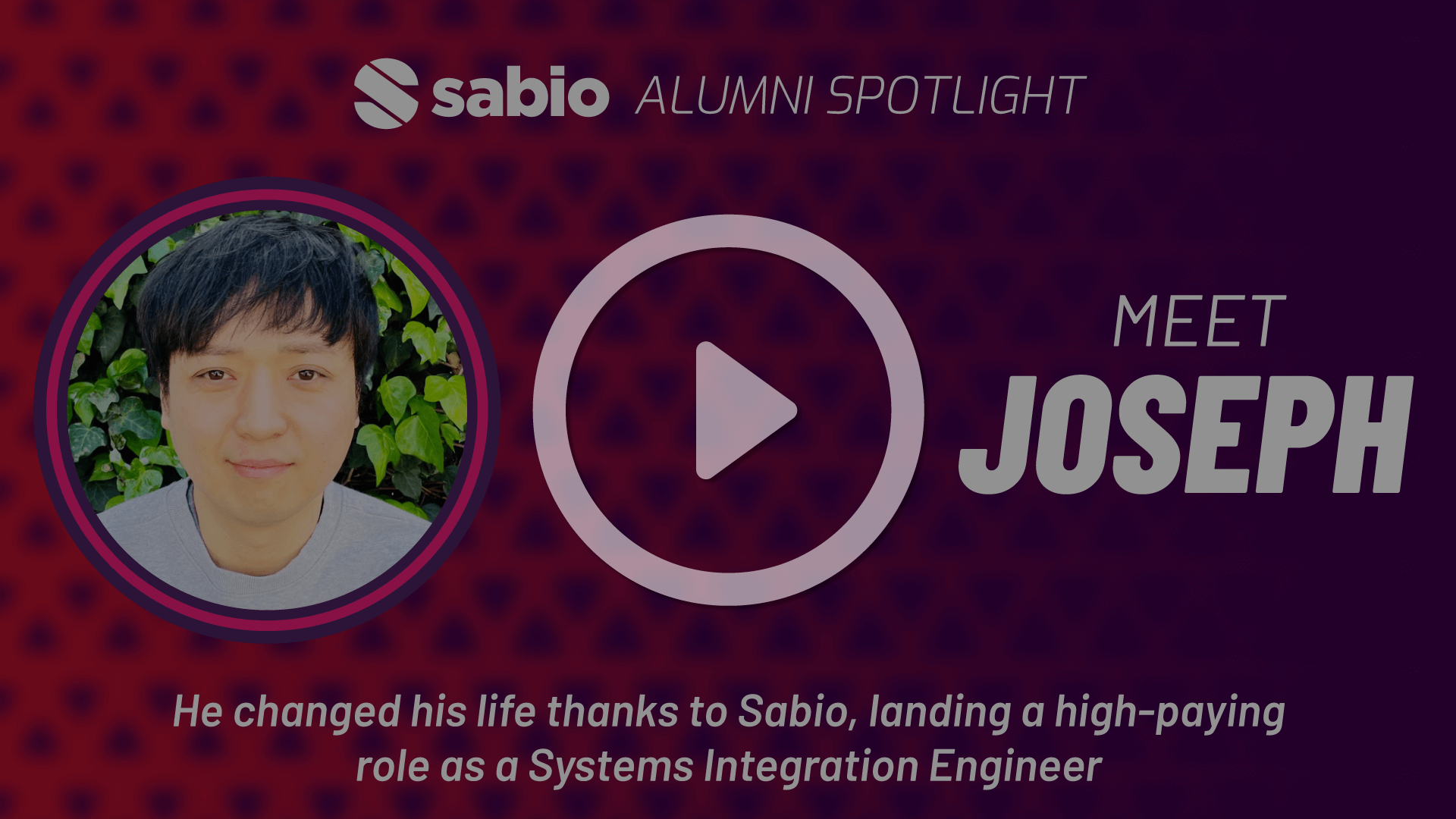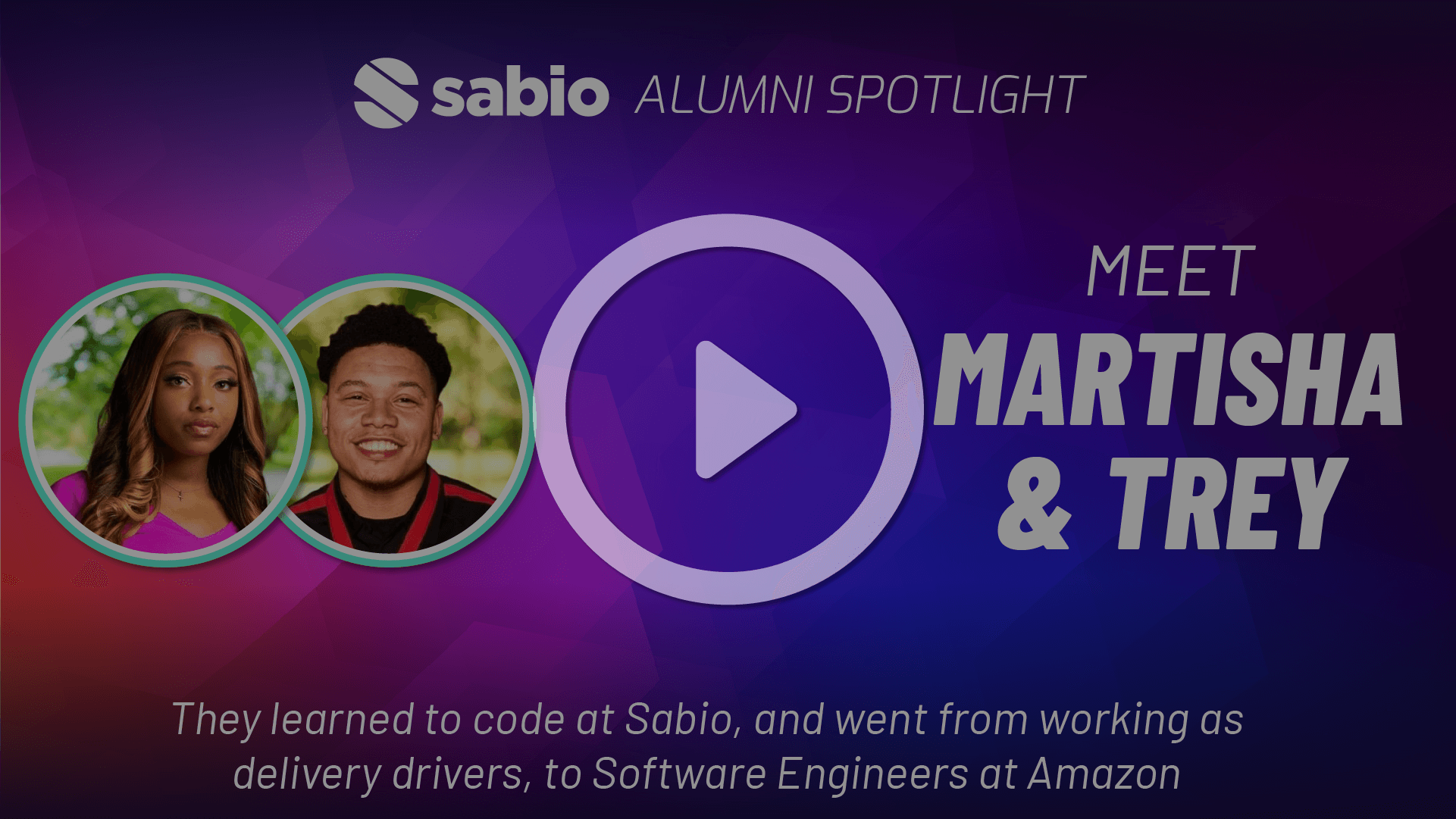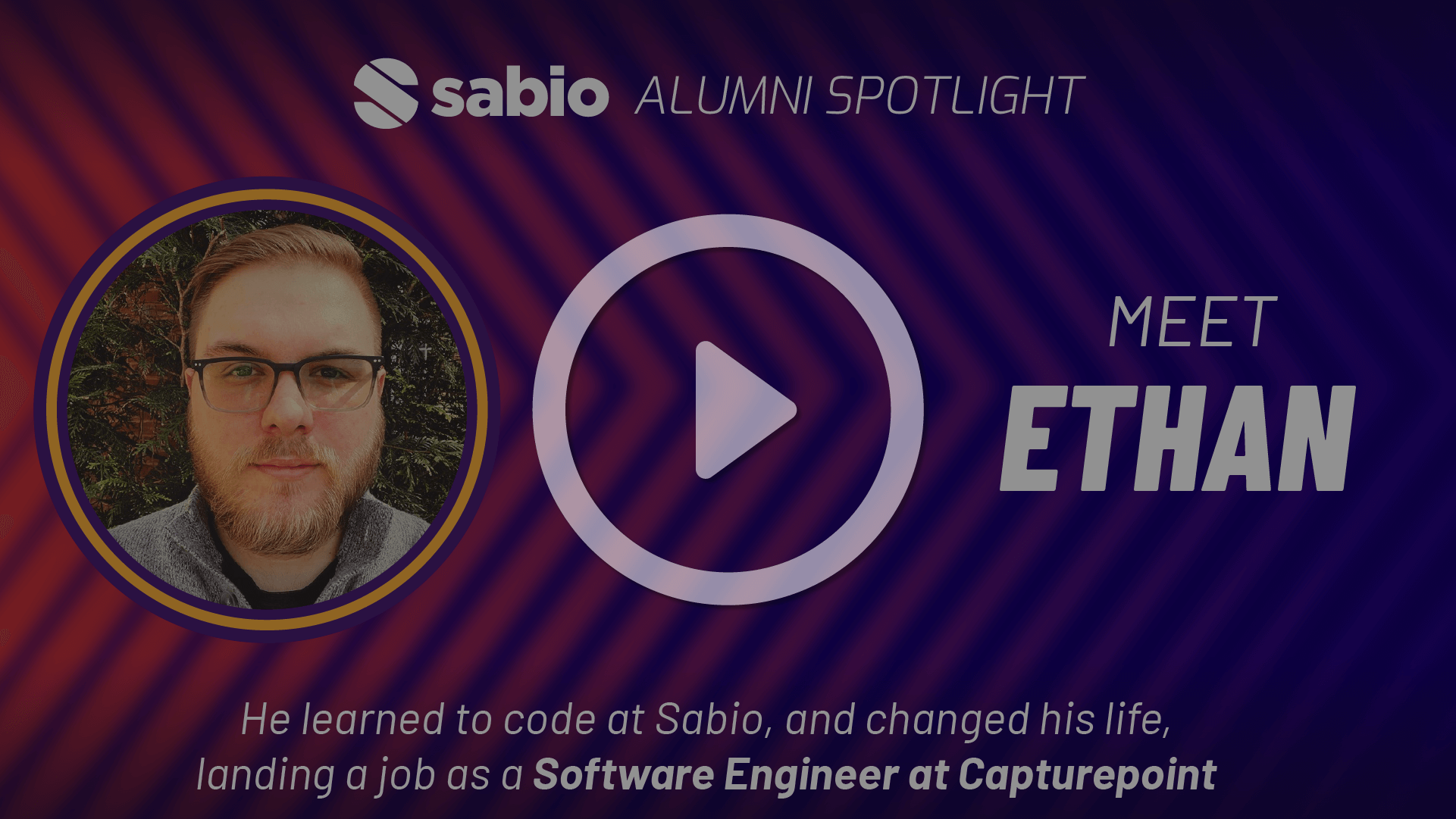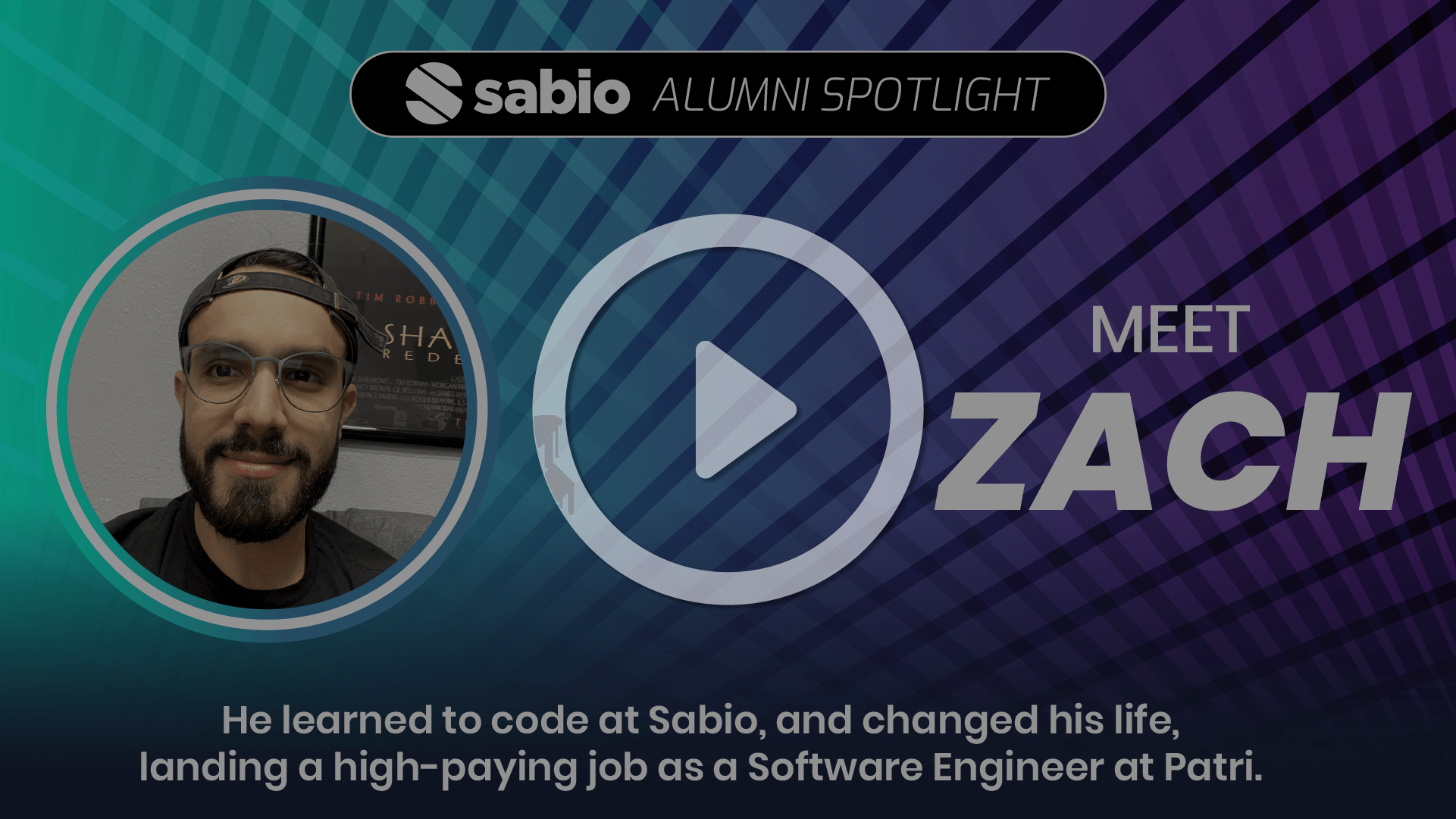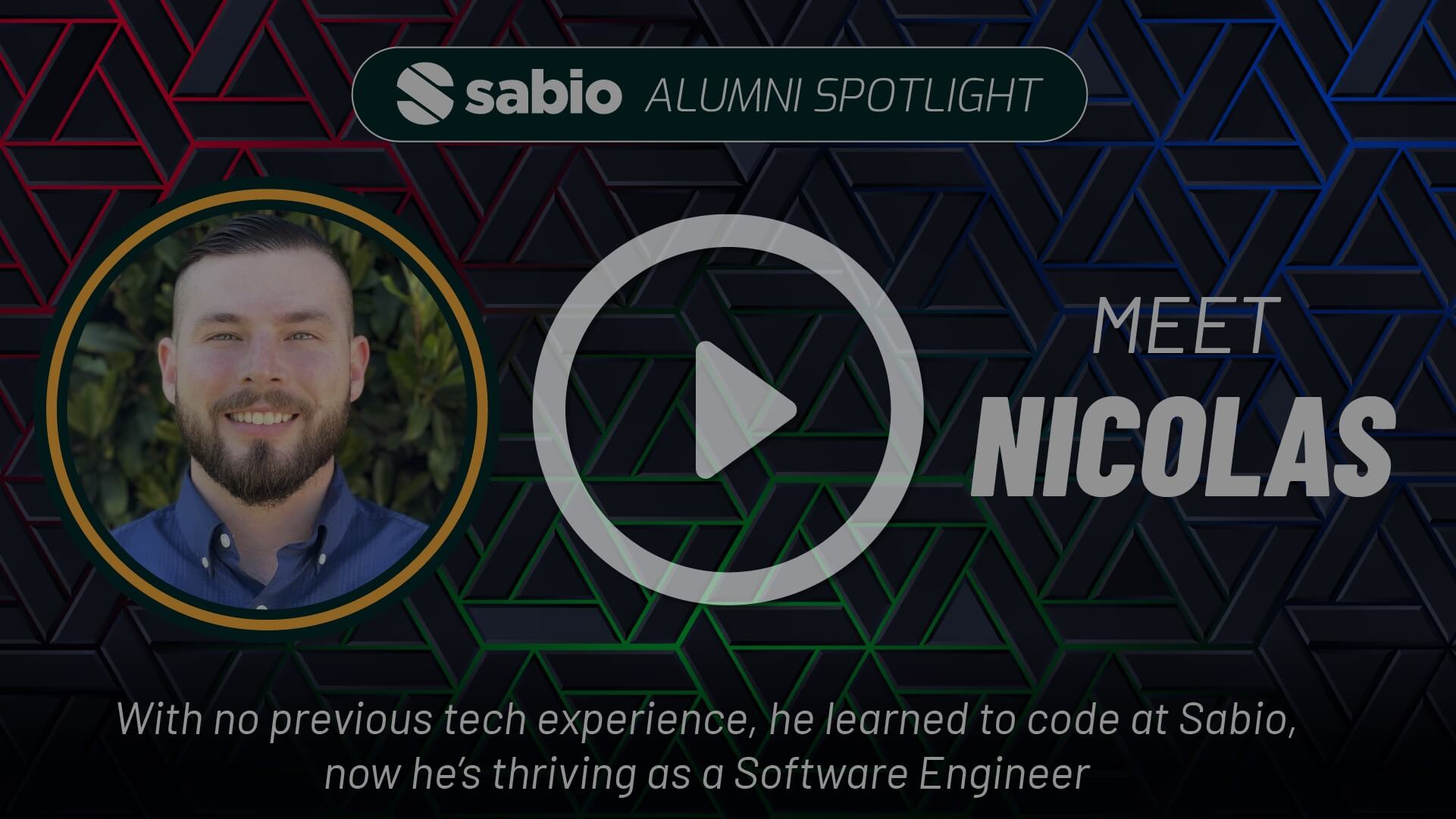Now Reading
Taevin Alumni Spotlight
Sunday, May 14, 2023
“Let’s just talk plainly about this” – How Talking through Code and Narrativizing his Software Experience Helped Taevin to a $105,000 a year job
“Let’s just talk plainly about this” – How Talking through Code and Narrativizing his Software Experience Helped Taevin to a $105,000 a year job
TAEVIN:
Every week, I'm like, Dang, I kind of miss the bootcamp. Like, the community was just amazing. And it's like, while you're in it, don't even worry about trying to get the job. Just do the task that's in front of you as it's in front of you and enjoy the shit out of it.
Most of the time when I wasn't coding and I was in class I was helping everybody. We were talking, we were talking about code. Turned around like, okay, this isn't working. How do I get…Can somebody help me get something going on? And that's where I got really good at coding was in code talks. And I don't mean that in a super formal way either. Like just grab a homie and be like, Yo, let's just talk plainly about this and try to figure this out.
Q: What was the technical interview like?
TAEVIN:
The technical interview was actually, to my surprise, wasn't what I was thinking. It was a bunch of technical questions about what I created. Hey, have you ever worked with a C# class? Have you ever worked with this? Have you ever worked with a React component? You know what I'm saying? So like, very basic questions, and I just explained in depth what I did with them, basically telling the story of my project.
Those interview questions that they give you in Sabio, just read them. What I did was I read the question and then I answered it to myself out loud. So I would try to think of it like what I was doing and this is a story. Okay, let me start here. I’m gonna start from the user's experience and talk through it and write it down, put it on paper, put it on notepad, because if you don't, then you're not going to remember it. So you just got to practice it, rehearse it, and then you got it.
Q: How did you dodge the “experience question”?
TAEVIN:
On my second round interview at my company, the one I currently work at, the first two minutes of the phone call after the introduction – Hey, how you doing? Hey, my name's this. Hey, my name's that, nice to meet you, blah, blah, blah – Hey, so I noticed that you actually only have one year of experience on your resume. I was talking with the senior developers on the team, it looks like they're actually looking for somebody with about three years plus of experience right now. And as soon as she said that it was just a switch that flipped. And I said [to myself], if I don't say something right now, then this job is gone. So I instantly had to just pull out confidence out of nowhere and just be like, Look, yeah, I definitely understand that like on my resume it shows that I have one year of experience. However, during that year of experience, I was working on a project with an agile team using agile methodologies and we would go through multiple different stand-ups every single day. We'd go through code talks. We were doing real life work. I know my experience shows a year on paper. However, my skillset and experience is of the 2 to 3 year knowledge level. I actually consider myself more of a mid-level engineer rather than an entry-level. I felt so appreciative and grateful for the opportunity to go through Sabio, even though, like sometimes when I was in it, I was like, Man, is this really going to pay off? Like, dude, I come into my job and they're requiring three years of knowledge and the stuff that they're teaching me, I feel like it's entry level. So it's like, you know, we were overstressing ourselves. Their three years of experience is what we think entry-level is.
Q: Can you talk about your salary and benefits package?
TAEVIN:
My job started me off fully remote at $105,000 a year, fully paid benefits. I have no payments on premiums or anything. The company loves their employees so much that they're going to be splitting off bonuses. So they said it's gonna roughly estimate about $18,000, which is like, almost made me like crap myself because, what? $18,000?!
Q: What is your outlook on the job market?
TAEVIN:
4.5 million software engineers work in the US. There's 1.5 million jobs available. Of those 4.5, about 70% of them are already employed and under 20% are self-employed or somewhere in that category. And then there's another percentage of them that people are not looking, just not looking for jobs at all. So there's a very small percentage and let's just call it 1.5 million software engineers that are looking for jobs. And there's about 1.5 million jobs that are available. So everybody has their needle in the haystack. It's just how hard are you really going to work to get it? Period.
During our Info Sessions you will learn all about our program, and also get to speak with Sabio team members. In addition, every week you get to hear directly from recent grads that are now thriving in tech.

Sabio Info Session

Info Sessions are your chance to meet our instructors via Zoom and to get an overview
of what Sabio and Alliant International University have to offer from our innovative program.
It’s a warm environment where you can ask questions and get over any fears or hesitancy you
may be experiencing.
*All times are PDT/PST

